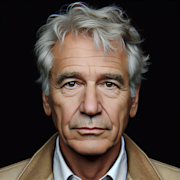Apocalypse Now (1979)

In 1979, director Francis Ford Coppola released the epic war film “Apocalypse Now” which has since become a classic in cinema history. Set during the Vietnam War, the movie follows Captain Benjamin L. Willard (played by Martin Sheen) as he is sent on a mission to assassinate Colonel Walter E. Kurtz (Marlon Brando), a highly decorated officer who has gone rogue and is leading his own army deep into the Cambodian jungle. The movie explores themes of war, power, madness, and the darkness of the human soul. Let’s delve deeper into this iconic film.
The Making of a Masterpiece
“Apocalypse Now” was plagued with production issues from the start, from typhoons destroying sets to Martin Sheen suffering a heart attack during filming. Despite the setbacks, Coppola pushed through and delivered a visually stunning and thematically rich film that garnered critical acclaim and multiple awards.
The cinematography by Vittorio Storaro is breathtaking, capturing the lush landscapes of Southeast Asia and the horror of war with equal skill. The use of sound is also noteworthy, with the famous helicopter attack scene set to Wagner’s “Ride of the Valkyries” becoming a standout moment in the film.
The Heart of Darkness
At its core, “Apocalypse Now” is a modern retelling of Joseph Conrad’s novella “Heart of Darkness.” Both works explore the descent into madness and darkness that occurs when civilized norms are stripped away in the face of the brutality of war and imperialism. Marlon Brando’s Colonel Kurtz embodies this descent, with his rambling, philosophical speeches and brutal actions leaving a lasting impact on both Willard and the audience.
The contrast between Kurtz and Willard is stark, with Kurtz embracing the darkness within him while Willard struggles to maintain his moral compass in the face of unimaginable horrors. Their final confrontation is a gripping climax that leaves the audience questioning the nature of good and evil.
The Madness of War
“Apocalypse Now” does not shy away from depicting the madness and futility of war. From the iconic “napalm in the morning” scene to the brutal slaughter of a village by American soldiers, the film showcases the dehumanizing effects of combat on both the perpetrators and the victims. The soldiers Willard encounters along his journey are broken and disillusioned, with some resorting to drugs or violence to cope with the chaos around them.
The portrayal of the Vietnamese people in the film has been a subject of controversy, with some critics accusing Coppola of perpetuating stereotypes and exoticizing the culture. However, the film also includes moments of humanity and compassion, such as the encounter with the French plantation owners and the surfing enthusiast Lieutenant Colonel Kilgore.
Legacy and Influence
“Apocalypse Now” remains a touchstone in cinema history, influencing countless filmmakers and becoming a cultural touchstone for the Vietnam War era. The film’s themes of madness, darkness, and the complexities of human nature continue to resonate with audiences today, making it a timeless classic.
In conclusion, “Apocalypse Now” is a masterpiece of filmmaking that pushes the boundaries of storytelling and visual art. From its troubled production to its enduring legacy, the film stands as a testament to the power of cinema to explore the depths of the human experience. Whether you’re a fan of war films or simply appreciate great cinema, “Apocalypse Now” is a must-see for any film buff.

Desmond van der Walt
Journalist
More From Classics Authority Movies

Movie
Seduction on Set: Hollywood's Most Alluring Love Stories

Movie
King Kong (1933)

Movie
The Timeless Appeal of Classic Coming-of-Age Films

Movie
The Kid (1921)

Movie
Doctor Zhivago (1965)

Movie
The Godfather Part II (1974)





